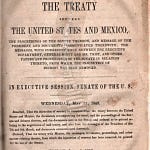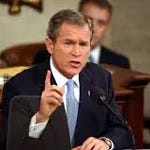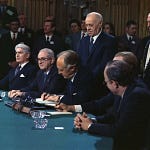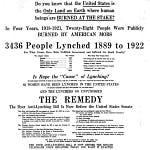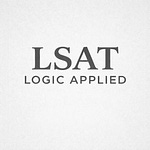This Day in Legal History: Patent Cooperation Treaty Signed
On June 19, 1970, the Patent Cooperation Treaty (PCT) was signed, marking a significant milestone in international intellectual property law. The PCT established a unified procedure for filing patent applications to protect inventions in multiple countries. Prior to the PCT, inventors needed to file separate patent applications in each country where they sought protection, a costly and time-consuming process.
The PCT streamlined this by allowing inventors to file a single international application, which could then be pursued in each contracting state. Managed by the World Intellectual Property Organization (WIPO), the treaty aimed to simplify and reduce the cost of obtaining multinational patent protection.
The system introduced by the PCT has two main phases: the international phase and the national phase. During the international phase, the application is reviewed for formal requirements and subjected to an international search and preliminary examination. In the national phase, the application enters the national jurisdictions of the chosen countries for further examination according to local laws.
The PCT has been crucial in promoting innovation and technological advancement by providing a more efficient path for securing patent rights internationally. Today, over 150 countries are members of the PCT, reflecting its global acceptance and importance in the realm of intellectual property.
Senate Democrats canceled a procedural vote to advance President Biden's nominee, Mustafa Kasubhai, for a federal district court judge in Oregon. Majority Leader Chuck Schumer cited attendance issues as the reason for postponing the cloture vote, which will be rescheduled soon. With a narrow 51-49 majority, Democrats face challenges in confirming controversial nominees. Kasubhai, currently a magistrate judge, would be among the few Muslim Americans to serve as a life-tenured federal judge.
His nomination has faced strong GOP opposition, with Republicans questioning his views on diversity, equity, inclusion, and the use of preferred pronouns in his courtroom. They have also scrutinized his past writings, some dating back to his time as a law student, and accused him of holding radical views, including Marxism. The absence of Sen. Robert Menendez, due to his bribery trial, and potential opposition from Sen. Joe Manchin, who demands bipartisan support for nominees, complicate Kasubhai's confirmation prospects.
Senate Democrats Pull Vote on Trial Court Nominee Kasubhai (1)
A banking industry challenge to the Consumer Financial Protection Bureau's (CFPB) rule capping credit card late fees at $8 will remain in Texas after the Fifth Circuit Court of Appeals blocked a transfer to Washington, D.C. The case, filed by the U.S. Chamber of Commerce and several banking associations, was initially moved by Judge Mark Pittman, who argued it was better suited for the District of Columbia due to the lack of affected banks in Texas. However, the appellate court halted the transfer, noting the nationwide impact of the CFPB's rule.
Judge Don Willett emphasized that the case's broad implications extended beyond Texas, making it inappropriate to consider it a localized issue. The CFPB and the plaintiffs will continue to argue over the venue. This decision comes amidst broader concerns about venue shopping, with industry groups favoring Texas courts perceived as more sympathetic to their challenges against federal regulations.
The CFPB's credit card late fee rule, introduced on March 5, aims to reduce so-called junk fees and could significantly impact banks' revenue, potentially costing them $10 billion annually. The banking industry quickly filed a lawsuit to block the rule, reflecting its substantial financial stakes. The Fifth Circuit's ruling highlights the ongoing tension between regulatory efforts and industry pushback.
Credit Card Late Fee Suit Kept in Texas Again by 5th Cir. (1)
A San Francisco federal judge has sanctioned Apple Inc. in a privacy class action lawsuit by barring certain defenses due to the deletion of audio recordings from its Siri voice assistant. Magistrate Judge Sallie Kim of the US District Court for the Northern District of California ruled that Apple failed to halt its data retention policy after the lawsuit was filed, resulting in the destruction of electronically stored information (ESI) central to the case.
Apple had argued that the deleted data was irrelevant, but the court disagreed. As a result, Apple is prohibited from making several defenses, including claims that plaintiffs lack standing due to insufficient evidence of false Siri triggers, arguments against class-wide damages based on the number of false recordings, and defenses regarding Apple's intent based on repeated false recordings.
The lawsuit, initiated in 2019, accuses Apple of violating wiretap laws by intercepting and misusing private conversations through Siri without users' intentional activation. Plaintiffs alleged that Apple continued deleting relevant recordings years after the litigation began, thus deliberately interfering with the case.
Judge Kim indicated that a jury must decide whether Apple's deletion of information was intentional, which could lead to further sanctions. The plaintiffs are represented by Lexington Law Group LLP, Lowey Dannenberg PC, and Scott & Scott LLP, while Apple is represented by DLA Piper LLP and Morrison & Foerster LLP. The case is Lopez v. Apple, Inc.
Apple Restricted on Siri Trial Defenses for Deleting Recordings
The U.S. Federal Trade Commission (FTC) has referred a complaint against TikTok and its parent company, ByteDance, to the Justice Department over potential violations of children's privacy laws. This action stems from an investigation that found reasons to believe TikTok might be violating the law, prompting the FTC to seek legal proceedings in the public interest. The FTC typically keeps such referrals confidential but made an exception in this case.
The complaint follows earlier reports from 2020 that the FTC and the Justice Department were investigating TikTok for allegedly failing to comply with a 2019 agreement to protect children's privacy. TikTok expressed disappointment over the FTC's decision to pursue litigation instead of seeking a settlement, claiming that many of the allegations are outdated or inaccurate.
This investigation is separate from ongoing Congressional concerns about the potential misuse of data from TikTok's 170 million U.S. users by the Chinese government, an allegation TikTok denies. Additionally, TikTok is preparing to file a legal brief against a law requiring ByteDance to divest TikTok's U.S. assets by January 19 or face a ban.
The FTC's actions highlight the heightened scrutiny TikTok faces regarding privacy and national security issues in the U.S.
Child privacy complaint against TikTok referred to US Justice Dept | Reuters






